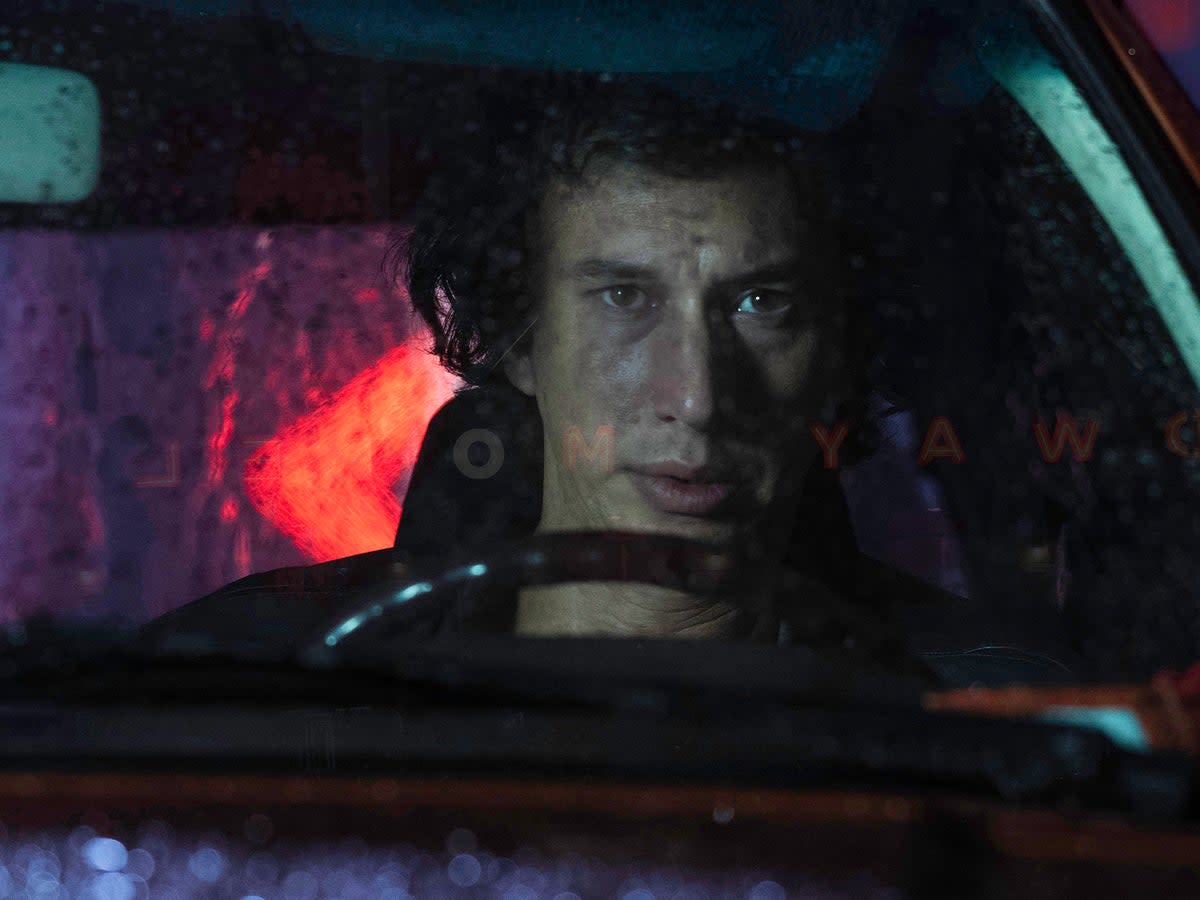White Noise review: Adam Driver and Greta Gerwig’s apocalyptic death dreams prove oddly comforting

- Oops!Something went wrong.Please try again later.
- Oops!Something went wrong.Please try again later.
- Oops!Something went wrong.Please try again later.
- Oops!Something went wrong.Please try again later.
Despite all their self-mythologisation, filmmakers are still ultimately mortal. So it’d be entirely forgivable if they’d spent the past few years preoccupied with death. Why else would Noah Baumbach have been so drawn to make White Noise? This is, after all, an adaptation of Don DeLillo’s supposedly “unfilmable” novel that positions fear of the grave as the driving force behind every American ideal, from station wagons to Elvis Presley.
DeLillo’s language is severe and enchantingly precise; every individual in his world is a philosopher lecturing to no one but themselves. His book is set in the Eighties and concerns a miniaturised apocalypse triggered by a cloud of chemicals – not an obvious fit, then, for Baumbach, whose films (Marriage Story; The Meyerowitz Stories) largely concern the most intricate neuroses of modern-day, self-branded intellectuals. But there is nothing more self-centred, perhaps, than a fear of death. And even the director’s most likeable characters, such as Greta Gerwig’s freewheeling protagonist of Frances Ha, suffer from acute narcissism. The effect here is that his White Noise comes across far more sentimentally than DeLillo likely ever intended. Yet its forgiving nature is oddly comforting.
Its story concerns Jack Gladney (Adam Driver, plus paunch and receding hairline), a world leader in the academic study of Adolf Hitler, and his fearful but radiant wife Babette (Gerwig). Something about Driver’s role here reminds me of his character from HBO’s Girls, in the way the actor can imbue even the most pathetic of his roles with twisted, heroic grandeur. Jack is a somewhat passive father figure, who explodes into life in the lecture hall. Gerwig, Baumbach’s real-life partner and frequent collaborator, can deliver sincerity without fakery, as both a performer and, in her own work, as a director. That becomes crucial for Babette, who possesses the film’s most vulnerable, straightforwardly emotional monologue.
Jack and Babette have four children. There is the eldest, Denise (Raffey Cassidy). The middle children are Heinrich and Steffie, played by Alessandro Nivola and Emily Mortimer’s two children, Sam and May. Their youngest, a toddler, is named Wilder (Dean and Henry Moore). All are excellently cast. Their home is a kaleidoscope of voices and overlapping non-sequiturs. At one point, when it seems like the family might be in real danger, one of the kids pips up with: “Do sheep have eyelashes?” Such is the curse of living in DeLillo’s world, where there are too many thoughts to be thought and little room to engage in reality. That becomes a real problem when the town is threatened by an “airborne toxic event” triggered by a truck’s collision with a freight train.
Baumbach has omitted one of the most famous passages of DeLillo’s book, in which his characters visit the “Most Photographed Barn in America”. The author uses it to theorise that our reality is now so documented and commodified that it ceases to exist as an independent state. We’re never looking at the barn as it is, but only at the barn as it’s been photographed. Rather than try and clumsily translate the passage onto film, Baumbach instead finds his own way to integrate that idea into the very language of his adaptation. White Noise, therefore, swings wildly between cinematic allusions – there are car chases, hints of Spielbergian wonderment, touches of David Lynch’s dream logic, and Brian De Palma’s lurid thrillers. It ends with a musical dance sequence set to LCD Soundsystem.
Much like the “Most Photographed Barn in America”, these references create distance. They help us face the mortal terrors of White Noise with a little more ease. The same could be said of the Gladney’s familiar rituals, from their supermarket trips to their daily verbal pile-ups. But Baumbach also suggests these might be nothing but harmful delusions, ultimately making us blind to fate. The spectacle of society may be our only comfort, but could it also herald our ultimate doom?
Dir: Noah Baumbach. Starring: Adam Driver, Greta Gerwig, Raffey Cassidy, André Benjamin, Jodie Turner-Smith, Don Cheadle, Sam Nivola, May Nivola. 15, 136 minutes
‘White Noise’ is streaming on Netflix from 30 December

